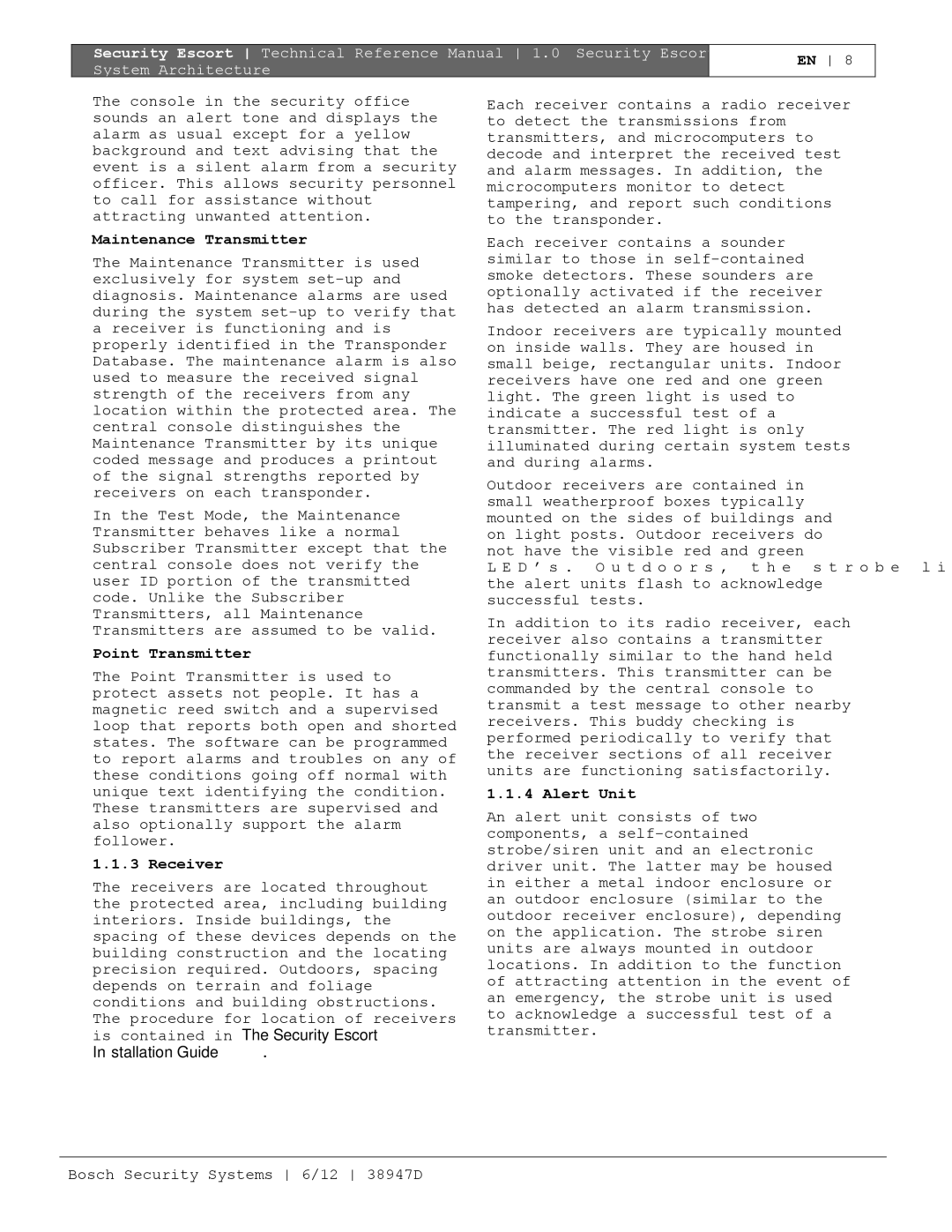
Security Escort Technical Reference Manual 1.0 Security Escor System Architecture
EN 8
The console in the security office sounds an alert tone and displays the alarm as usual except for a yellow background and text advising that the event is a silent alarm from a security officer. This allows security personnel to call for assistance without attracting unwanted attention.
Maintenance Transmitter
The Maintenance Transmitter is used exclusively for system
In the Test Mode, the Maintenance Transmitter behaves like a normal Subscriber Transmitter except that the central console does not verify the user ID portion of the transmitted code. Unlike the Subscriber Transmitters, all Maintenance Transmitters are assumed to be valid.
Point Transmitter
The Point Transmitter is used to protect assets not people. It has a magnetic reed switch and a supervised loop that reports both open and shorted states. The software can be programmed to report alarms and troubles on any of these conditions going off normal with unique text identifying the condition. These transmitters are supervised and also optionally support the alarm follower.
1.1.3 Receiver
The receivers are located throughout the protected area, including building interiors. Inside buildings, the spacing of these devices depends on the building construction and the locating precision required. Outdoors, spacing depends on terrain and foliage conditions and building obstructions. The procedure for location of receivers is contained in The Security Escort Installation Guide.
Each receiver contains a radio receiver to detect the transmissions from transmitters, and microcomputers to decode and interpret the received test and alarm messages. In addition, the microcomputers monitor to detect tampering, and report such conditions to the transponder.
Each receiver contains a sounder similar to those in
Indoor receivers are typically mounted on inside walls. They are housed in small beige, rectangular units. Indoor receivers have one red and one green light. The green light is used to indicate a successful test of a transmitter. The red light is only illuminated during certain system tests and during alarms.
Outdoor receivers are contained in small weatherproof boxes typically mounted on the sides of buildings and on light posts. Outdoor receivers do not have the visible red and green LED’s. Outdoors, the strobe lights on the alert units flash to acknowledge successful tests.
In addition to its radio receiver, each receiver also contains a transmitter functionally similar to the hand held transmitters. This transmitter can be commanded by the central console to transmit a test message to other nearby receivers. This buddy checking is performed periodically to verify that the receiver sections of all receiver units are functioning satisfactorily.
1.1.4 Alert Unit
An alert unit consists of two components, a
Bosch Security Systems 6/12 38947D
